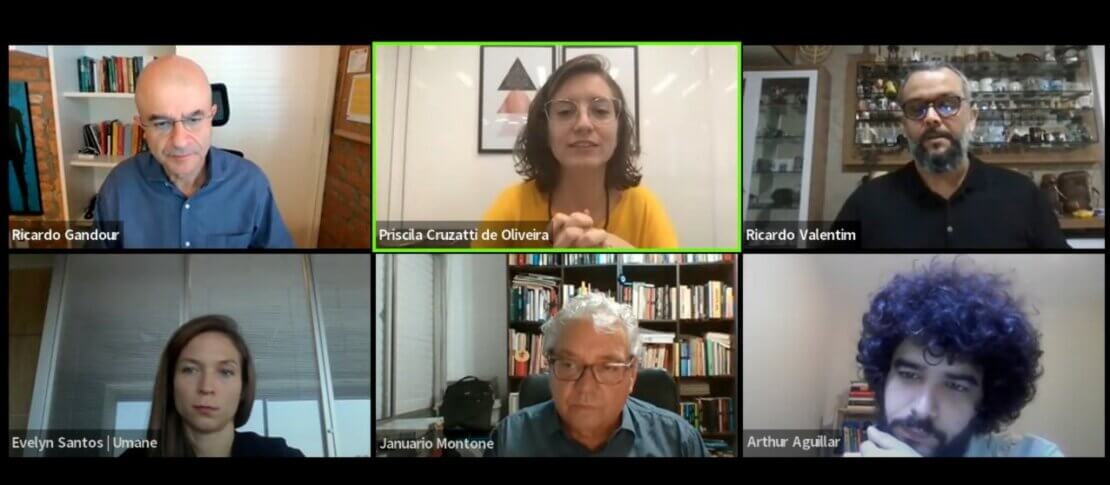By Dênia Cruz and Jordana Vieira – Ascom/LAIS
On Thursday morning (28), the executive director of the Laboratory for Technological Innovation in Health at the Federal University of Rio Grande do Norte (LAIS/UFRN), Ricardo Valentim, participated in the 7th webinar “IEPS Dialogues”. The event was promoted by the Institute for Health Policy Studies (IEPS) in partnership with Umane, a non-profit civil association dedicated to supporting initiatives of disease prevention and health promotion, in the field of public health, in the national territory.
Also participating in the seminar were Januário Montone, former Municipal Health Secretary of São Paulo; Priscila Cruzatti, Innovation and Digital Health Manager at Hospital Alemão Oswaldo Cruz; Evelyn Santos, Project Coordinator at Umane; and Arthur Aguilar, Public Policy Director at IEPS. The debate was mediated by journalist and professor Ricardo Gandour.
In his speech, LAIS director pointed out that there are many technologies being developed out of context, and that’s why they are not used. “To strengthen Primary Care it is necessary to make the service provided transparent. In this way, the population can evaluate and the manager can see the population’s evaluation. The improvement of Primary Care goes through the change in the logic of financing.” Also according to him, the incorporation of technology needs to go through a regulatory process in public health. “Besides that, discussing transparency to expose all the services provided should be a constant practice in public management,” explained Valentim.
Responsible for opening the speeches, manager Arthur Aguilar brought points that cause barriers in the health service and that can be solved with the use of innovation and technology. “When I think of innovation I think of a leaping frog, the leap of the frog, because certain innovations are capable of giving us a leap of technology and innovation. And an inspiration as ambitious as the SUS can only be answered with a lot of innovation and reflection on how we are going to effectuate a right for so many people,” he put it.
The next speaker was Priscila Cruzatti, who highlighted the need to share innovation experiences with those who are developing and researching the subject. “Today in Brazil we lack a space where we can research and share what we are doing, including the flaws. This is a provocation for us to reflect on.” She also remembered the importance of the good use of innovation in health actions. “Innovation is no use if it doesn’t solve real problems; we need to focus on the problem and address the solution. When we understand that innovation is a way to solve relevant problems, it becomes clear why it is an important agenda.”
Following the presentations, it was Januário Montone’s turn, who talked about the performance of Social Health Organizations (OSS), putting it as a possibility of innovative management. “Social organizations are not disseminated because there are accusations of corruption, but there were no public policies to apply this model, and the State did not build means to apply it. I think we should work on changing this model.”
Concluding the speeches, Evelyn Santos cited points applicable in primary care that are, in her view, important for the advancement in the field of digital health strategy in Brazil. “We believe that the most promising areas for advancing care in SUS are those oriented or related to the use of data and new technologies, applied to the population’s health culture, the organization of lines of care, and the workforce in UBSs.”
The presentation took place remotely from 10am to 11:30am. The audience followed the broadcast on YouTube through the link: https://youtu.be/cYfEJ4jb9y8.





